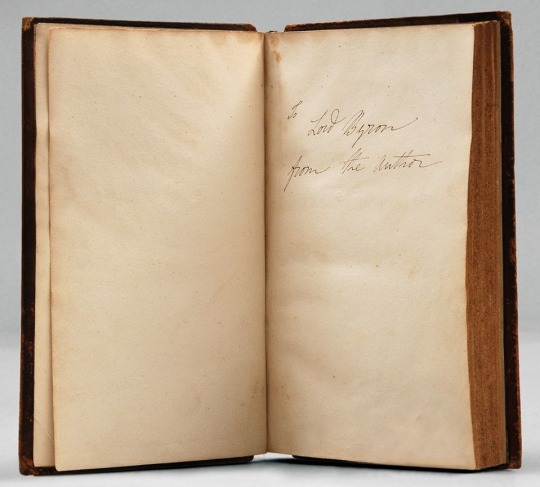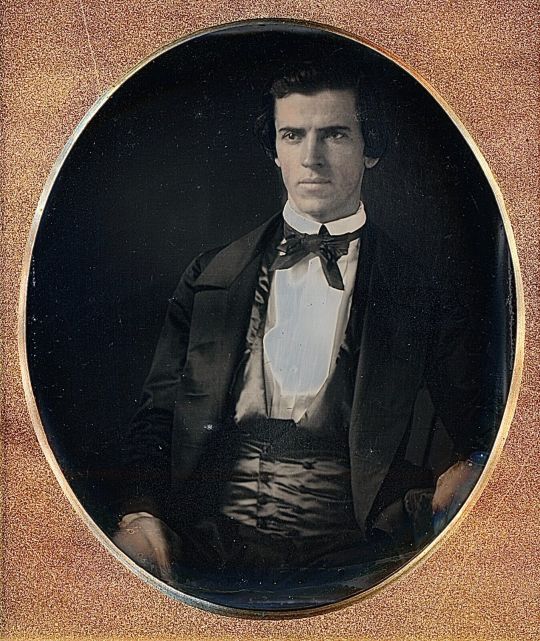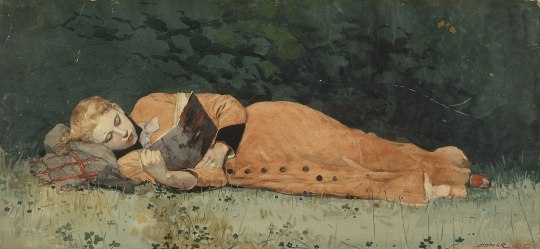#19th century novels
Text
"I never wish to be easily defined. I'd rather float over other people's minds as something strictly fluid and non-perceivable; more like a transparent, paradoxically iridescent creature rather than an actual person."
-Franz Kafka (diary of March 24th 1914)
#franz kafka quotes#franz kafka#daily kafka#kafka diaries#kafkaesque#kafka#the metamorphosis#19th century literature#19th century novels#20th century literature#literary#german literature#literature#literature quotes#classic literature#austrian literature#author#writing#writers and poets#philosophy novel#books and novels#novelist#books & libraries#book extract#book quote#book quotes#books and reading#poems and quotes#quotes#frenchnewwaves
276 notes
·
View notes
Text

#literature#booklr#hilarious#classic literature#classics#old books#victorian literature#19th century novels#drakula#Austen#gulliver’s travels
25 notes
·
View notes
Text
“The moon, that had imperceptibly added her rays to the scene, shone almost vertically. It was an exceptionally soft, balmy evening for the time of year, which was just that transient period in the May month when beech trees have suddenly unfolded their large limp young leaves of the softness of butterflies’ wings.” (401)
-Thomas Hardy The Woodlanders
I love the moon and moonlight. (Re-)read five of Hardy's novels this summer; human brokenness leading to tragic ends. Incredible writer. His critiques of the social mores of his time and its political limitations, as well as his deep descriptions of Nature are among what I most remember of Hardy's stories.
0 notes
Text
Lord Byron's first edition copy of Frankenstein (1818), one of only two known surviving copies to be personally inscribed by Mary Shelley (the other is to her friend Mrs. Thomas). Byron took this copy with him when he went into the Greek War of Independence, and it was among his personal things when he died there in 1824:

Mary didn't disclose her name in the inscription because the novel was published anonymously and she initially wanted to keep it that way. However, Byron did reveal her identity in a letter to his publisher, correcting his assumption that Percy was the one who wrote the novel:
"The story of the agreement to write the Ghost-books is true — but the ladies are not Sisters — one is Godwin’s daughter by Mary Wolstonecraft — and the other the present Mrs. Godwin’s daughter by a former husband. Mary Godwin (now Mrs. Shelley) wrote 'Frankenstein' — which you have reviewed thinking it Shelley’s — methinks it is a wonderful work for a Girl of nineteen — not nineteen indeed — at that time."
Under Mary Shelley's consultation, Thomas Moore writes in his Life of Lord Byron (vol III):
"During a week of rain at this time, having amused themselves with reading German ghost-stories, they agreed, at last, to write something in imitation of them. 'You and I,' said Lord Byron to Mrs. Shelley, 'will publish ours together.'"
Percy, writing as Mary with her permission, mentions Byron and himself (in the third-person) in the novel's 1818 preface thus:
"Two other friends (a tale from the pen of one of whom would be far more acceptable to the public than any thing I can ever hope to produce) and myself agreed to write each a story, founded on some supernatural occurrence.
The weather, however, suddenly became serene; and my two friends left me on a journey among the Alps, and lost, in the magnificent scenes which they present, all memory of their ghostly visions. The following tale is the only one which has been completed."
#mary shelley#frankenstein#percy shelley#percy bysshe shelley#lord byron#byron#shelley#the shelleys#literature#english literature#romanticism#novels#books#authors#writers#19th century#gothic literature#gothic#the geneva squad#lake geneva 1816#geneva squad#dreams of 1816
587 notes
·
View notes
Text
#jane eyre#charlotte brontë#charlotte bronte#edward rochester#mr rochester#classic literature#classic novels#literary couples#literary polls#19th century literature#jane x rochester
132 notes
·
View notes
Text
Van Helsing: Mina's been a great contributor thus far, but it's time to leave her out of the hunt. Her poor weak, fragile woman heart couldn't handle such horrors. Women just aren't as mentally or emotionally stable as us men.
Jonathan: *still has severe PTSD and is about to be forced to relive his trauma*
Arthur: *had just had his fifth mental breakdown this week*
Quincey: *thinks its a good idea to shoot a bat indoors*
Jack: *going through an existential crisis upon learning the supernatural exists*
#dracula daily#dracula#mysoginy moment in this 19th century horror novel#for someone with more degrees than a thermometer you'd think he'd be ya know smart!#this is going to come back to bite them later#figuratively and literally#plus they're denying mina the revenge that is so rightfully hers#let mina go feral 2022#abraham van helsing#mina harker#jonathan harker#arthur holmwood#quincey morris#jack seward
3K notes
·
View notes
Text

Daguerreotype of a promising young gentleman very talented at brooding, c. 1850s
#10/10 candidate for your next gothic novel#other skills include ‘smoldering’ ‘bow-tying’ and ‘emerging from shadow into the most flattering shaft of light’#19th century#1800s#1850s#1850s fashion#menswear#men's fashion#historical fashion#fashion history#19th century photography#daguerreotype#19th century men#vintage men
245 notes
·
View notes
Text
Reading every Les Mis chapter like:

#les mis letters#les mis#i think this meme works for any 19th century novel too#he really did a Lot#he got up to so many Things#victor hugo certainly had Opinions on him
491 notes
·
View notes
Text

Winslow Homer (1836 - 1910) - The New Novel, 1877, watercolor on paper.
#winslow homer#19th century art#woman#reading#novel#reading a novel#watercolor on paper#watercolour on paper#springfield museum#landscape painter#illustrator#american art#american artists#anerican artist#american landscape painter#american illustrator#drawing#wood engraver#wood engraving#oil painter#oil painting#watercolourist#watercolorist#watercolor painting#watercolour painting#marine artist#museum of art in springfield
859 notes
·
View notes
Text
'When you are not with me I hate you, Lef Nicolaievitch. I have loathed you every day of these three months since I last saw you. By heaven I have!' said Rogojin. 'I could have poisoned you at any minute. Now, you have been with me but a quarter of an hour, and all my malice seems to have melted away, and you are as dear to me as ever. Stay here a little longer...'
— Fyodor Dostoevsky, The Idiot, first published serially in the journal The Russian Messenger in 1868–69
#fyodor dostoevsky#dostoevksy#the idiot dostoevsky#literature#russian literature#classic literature#spilled ink#quotes#book quotes#excerpts#book excerpt#lit#books#books and libraries#prose#novel#reading#quote#book quote#19th century
81 notes
·
View notes
Video
Phantastes A Faerie Romance for Men and Women by George MacDonald
https://www.gutenberg.org/ebooks/325
#tiktok#George MacDonald#books and literature#books and writing#books and libraries#books and authors#books and reading#authors#writers#19th century novel#19th century#19th century literature
120 notes
·
View notes
Text
Me reading a Georgian book, being much too used to Victorian literature: He-(giggles) he’s talking about sex.
#the life and opinions of Tristram Shandy#gulliver’s travels#tristram shandy#Georgean books#victorian#19th century#19th century novels#Victorian books
10 notes
·
View notes
Text
On one level the book is about the life of a woman who is hardly more than a token in a great epic poem, on another it’s about how history and context shape how we are seen, and the brief moment there is to act between the inescapable past and the unknowable future.
Perhaps to write Lavinia Le Guin had to live long enough to see her own early books read in a different context from the one where they were written, and to think about what that means.
-Jo Walton
#thinking of how her last four novels between 2004 and 2008 show a progressive blossoming of interest in classical literary traditions#following nearly half a century's worth of a career where she seems to actively avoid the influence of classical or medieval europe#idk. but i think this explains annals of the western shore as much as lavinia.#she gets so interested in what it means to share the same stories across space and time (and class and gender and nationality)#to be united in a community by having the same poetry#and in such an obvious way thinking about classics as a discipline is an incredible way to work through that#and i do think its an interest that must come out of having witnessed her own work unite people in community across time#if you're talking about the way stories and poems bring people together across time...#i read the texts passed on to me by renaissance humanists and 19th century philologists and byzantine monks and late antique scribes...#and they're the same across time and space but they're also not#and to have seen her own work reach people across space and time and be the same but also not... that must have been incredible#so: did living long enough to see her own early books read in a different context and to think about what that means#drive her to think about classical literature as she clearly was for the better part of a decade?#mine#reception#anyway i gotta think about this and email [redacted] tomorrow
28 notes
·
View notes
Quote
I do not think, sir, you have any right to command me, merely because you are older than I, or because you have seen more of the world than I have; your claim to superiority depends on the use you have made of your time and experience.
Charlotte Brontë, “Jane Eyre”
#Jane Eyre#Charlotte Brontë#Quote#Novel#Literature#Gothic#Romanticism#19th Century#English#Women in Literature
457 notes
·
View notes
Text
I follow this tiktok for the history of medicine, and they recently posted about the kind of food patients would be served in a 19th century asylum. In relation to Renfield I thought this was rather interesting!
They also have a part two where they mention how different diets were prescribed to different mental conditions, like if someone was "melancholic" or "manic". It seems like Renfield could have had pretty decent food, especially if you factor the asylum being private and him being upper class. However, the flies clearly give Renfield extra satisfaction that normal food can not.
#dracula daily#renfield#r.m. renfield#victorian history#dracula (novel)#19th century#thebibi on vampirez
88 notes
·
View notes
Text
Ya know I’ve always wondered what the crew of Walton’s ship were doing during this part of the book. Robert is supposed to be the CAPTAIN of an ARCTIC EXPEDITION and he’s just like “Actually I gotta go personally check on the strange man sleeping in my quarters, he’s about to drop his life story on me and I cannot miss it”
Like what is the crew doing?? They’re trapped in the ice! What about rations?? A plan for winter?? Are the officers still having meetings without Walton? Is the unnamed first mate in charge???
#come ON man!#I know this is kinda sorta addressed as a Theme by the end but#WALTON DOESNT KNOW HES IN A GOTHIC NOVEL!#my brother in christ#YOU ARE THE CAPTAIN! OF!! AN ARCTIC!! EXPEDITION!!!!#IN THE EARLY 19TH CENTURY FOR GODS SAKE#I’m sorry it’s completely inconsequential to the plot but#but! I just read too much about Arctic expeditions and 18th-19thc maritime history to NOT point this out!#frankenstein#frankenstein weekly#I forget this is a gothic novel and not an actual Boat Media novel#inconsequential#but OOF
135 notes
·
View notes